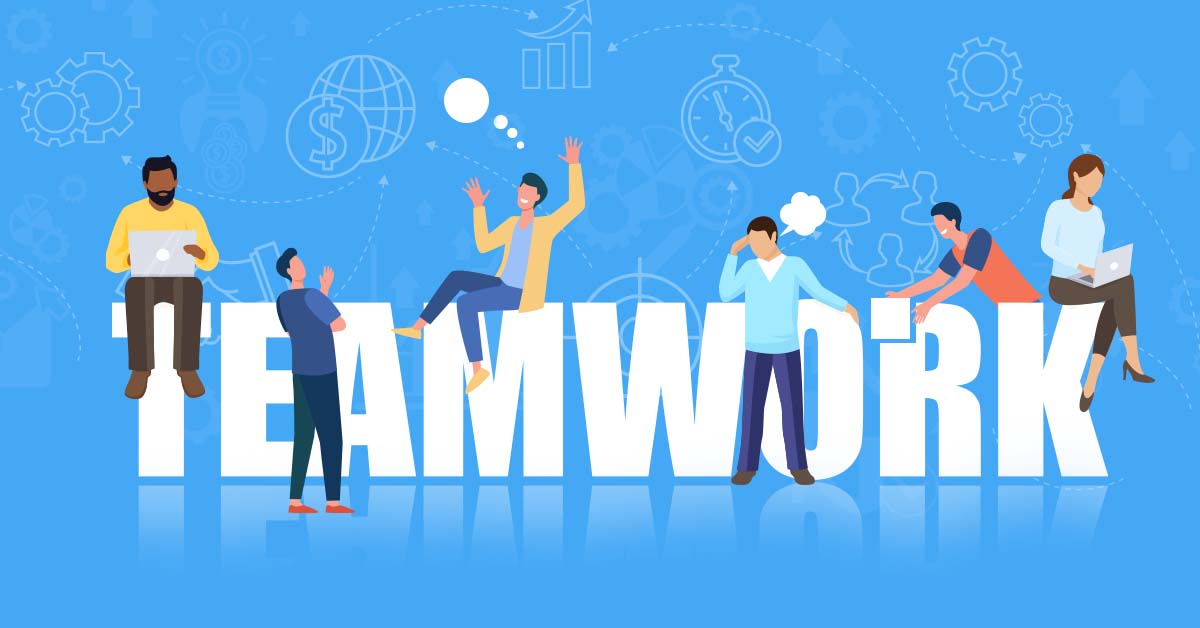Teamwork is often advertised as a key ingredient for success, and the phrase "Teamwork Makes the Dream Work" summarizes this sentiment perfectly. Whether in the context of sports, business, or any other collaborative attempt, the concept of teamwork highlights the importance of working together towards a common goal. This principle has been proven time and again, showing that when individuals come together, pooling their talents, skills, and efforts, they can achieve far more than they could alone.
The Essence of Teamwork
At its core, teamwork is about individuals working together cooperatively and collaboratively towards a shared vision or goal. It involves a group of people pooling their diverse skills, perspectives, and experiences to achieve a common objective. Teamwork is not just about dividing tasks among group members but also about leveraging each individual's strengths to enhance the overall performance of the team.
The Benefits of Teamwork
One of the primary benefits of teamwork is the synergy it creates. When individuals work together towards a common goal, they can achieve more collectively than they could on their own. This synergy results from the combined effort, energy, and ideas of the team members, leading to greater innovation, creativity, and productivity.
Examples of Teamwork in Action
Teamwork is evident in various aspects of life, from sports to business and beyond. In sports, successful teams often attribute their victories to their ability to work together seamlessly, utilizing each player's strengths to achieve a common goal. For example, in basketball, a team's success hinges on players' ability to pass, shoot, and defend as a cohesive unit.
Overcoming Challenges Through Teamwork
While teamwork offers numerous benefits, it is not without its challenges. Communication breakdowns, conflicts, and differing opinions can hinder team progress. However, effective teamwork involves addressing these challenges head-on, fostering open communication, and promoting a culture of respect and collaboration.
The Role of Leadership in Teamwork
Teamwork Makes the Dream Work. Effective teamwork often relies on strong leadership to guide and inspire team members towards a common goal. A good leader not only sets clear objectives and expectations but also fosters a supportive and inclusive team environment. By providing direction, motivation, and support, leaders can help teams overcome challenges, stay focused, and achieve their goals.
Building Trust and Collaboration
Trust is a crucial component of successful teamwork. Team members must trust each other's abilities, intentions, and judgment in order to work effectively together. Building trust requires open communication, honesty, and a willingness to listen and respect each other's viewpoints. When trust is established, collaboration flourishes, leading to more innovative solutions and better outcomes.
Celebrating Diversity and Inclusion
Teamwork thrives in environments that embrace diversity and inclusion. When teams are made up of individuals from different backgrounds, cultures, and perspectives, they are better equipped to tackle complex problems and come up with creative solutions. Embracing diversity also fosters a sense of inclusivity, making team members feel valued and respected for their unique contributions.
The Impact of Teamwork on Personal Development
Beyond its professional benefits, teamwork also plays a significant role in personal development. Working in a team allows individuals to develop valuable skills such as communication, leadership, and collaboration. It also provides opportunities for personal growth, as team members learn from each other's experiences, perspectives, and feedback. Through teamwork, individuals can expand their horizons, challenge themselves, and become more well-rounded individuals.
The Importance of Communication in Teamwork
Effective communication is essential for successful teamwork. Clear and open communication allows team members to share ideas, provide feedback, and coordinate their efforts towards a common goal. When communication breaks down, misunderstandings and conflicts can arise, hindering team progress. By fostering a culture of open communication, teams can ensure that everyone is on the same page and working towards the same objectives.
Continuous Improvement and Adaptability
Teamwork is not a static process but rather a dynamic one that requires continuous improvement and adaptability. As teams work together towards their goals, they may encounter obstacles and challenges that require them to adjust their approach. By fostering a mindset of continuous improvement and adaptability, teams can overcome challenges, learn from their experiences, and become more effective over time.
Conclusion
Teamwork Makes the Dream Work is a powerful force that can transform dreams into reality. By bringing together individuals with diverse skills, experiences, and perspectives, teamwork enables groups to achieve more collectively than they could on their own. From sports teams to business organizations, the concept of "Teamwork Makes the Dream Work" rings true, highlighting the significance of collaboration in achieving success.






Comments